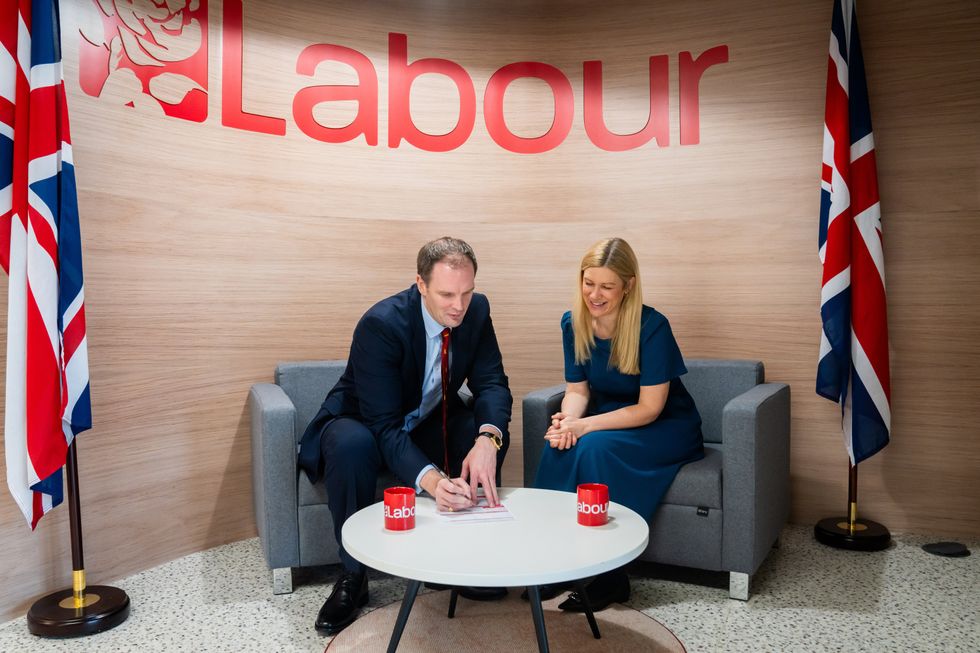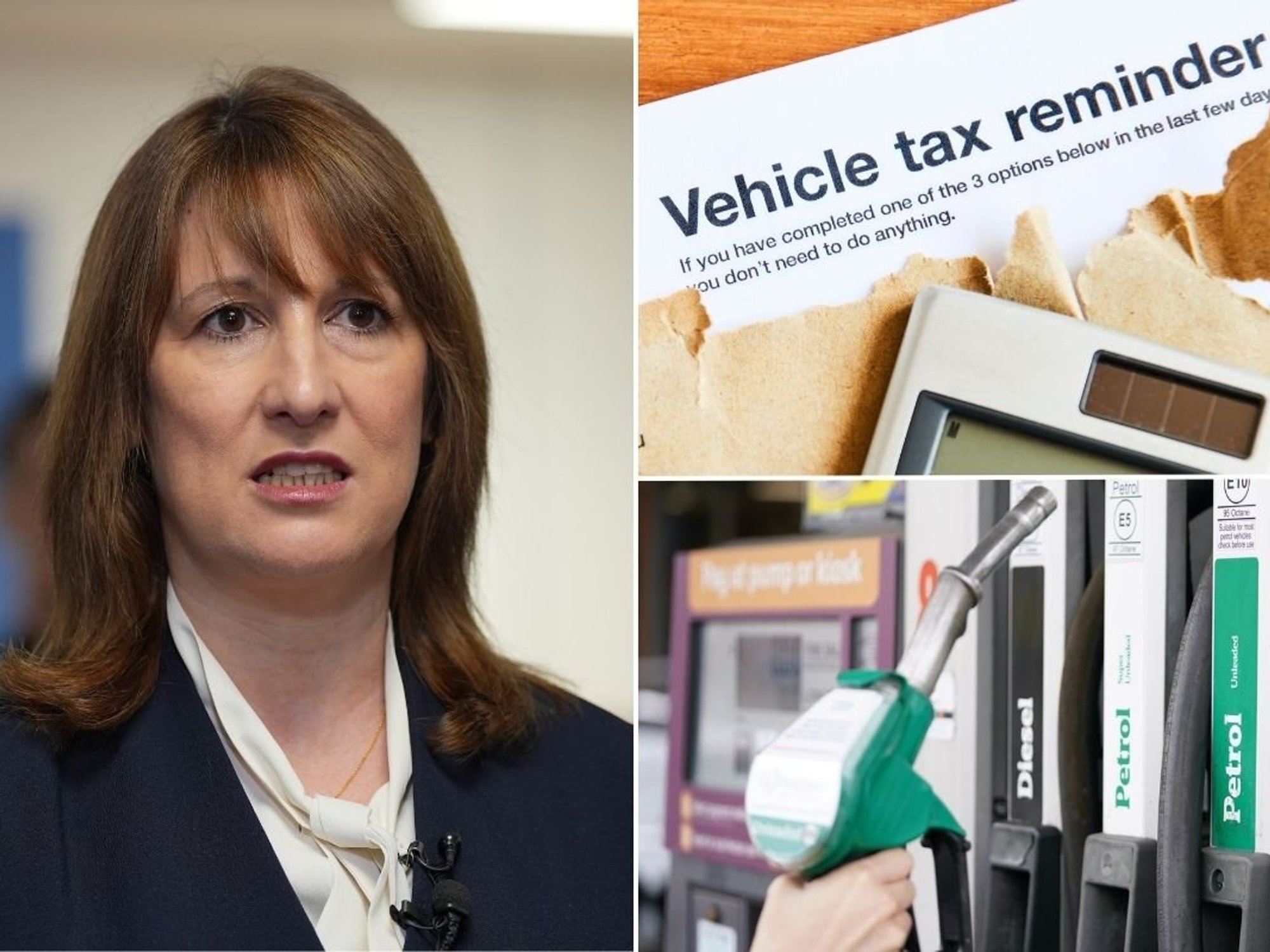‘Perpetuating the outdated NHS just drains taxpayer money,’ writes Bella Wallersteiner

‘Perpetuating the outdated NHS just drains taxpayer money,’ writes Bella Wallersteiner
|PA
‘The NHS finds itself mired in a quagmire of overspending and inefficiencies’
Don't Miss
Most Read
In the tumultuous world of British politics, Dr Dan Poulter MP’s defection from the Conservative Party to Labour over the weekend has already been largely forgotten by the Westminster bubble.
However, I couldn’t help but feel it was regrettable that another MP decided to stand up for preserving the status quo in our healthcare system. By clinging to the outdated socialist model of the NHS, politicians like Poulter are perpetuating a system that drains taxpayer money without delivering commensurate results.
In his defection, Poulter had an opportunity to champion real healthcare reform by advocating for an insurance-based model. Instead, he chose to align himself with Labour, a party that has historically resisted meaningful reforms and clung to outdated ideologies.
Poulter's insistence on maintaining a tax-funded NHS ignores the glaring inefficiencies and shortcomings of the current system. It's time to acknowledge that the NHS, despite its noble intentions, is burdened by skyrocketing waiting times, chronic staffing shortages, and ballooning costs, signalling a system in crisis. Pouring endless taxpayer money into a sinking ship is not a solution—it's a recipe for financial ruin.

MPs like Poulter's allegiance to the NHS overlooks the fundamental principle of fiscal responsibility. Why should hard-earned taxpayer money continue to be ploughed into a system that fails to deliver optimal outcomes?
The NHS finds itself mired in a quagmire of overspending and inefficiencies. Despite a staggering budget of £165billion for the upcoming financial year, hospitals are being forced to slash spending on doctors and nurses by hundreds of millions of pounds. It's a grim indictment of a system that haemorrhages taxpayer money while failing to deliver adequate care to those who need it most.
Meanwhile, the latest British Social Attitudes survey paints a gloomy picture of public sentiment towards the NHS, with satisfaction plummeting to a record low of just 24 per cent. This stark decline, fuelled by concerns over waiting times and staff shortages, underscores the urgent need for a fundamental overhaul of our healthcare system.
MORE AGENDA-SETTING OPINION:
NHS
|PA
For decades, the NHS has been hailed as a cornerstone of British society, but its failure to deliver timely and effective care has eroded public trust to unprecedented levels. From a high of 70 per cent satisfaction in 2010 to a dismal 24 per cent today, it's clear that the 1948 model is simply outdated.
This shift in public sentiment is unsurprising when you consider the latest statistics from the Office for National Statistics (ONS) showing nearly 10 million people are waiting for NHS appointments or treatments. These figures represent a shocking two million increase from previous estimates and reveal a system struggling to meet the needs of its citizens.
The ONS survey, conducted among approximately 90,000 adults, found that a staggering 21 per cent of patients were waiting for hospital appointments or treatments. Extrapolated, this equates to 9.7 million individuals left in limbo, their health hanging in the balance as they navigate through a labyrinth of waiting lists and delays.
What's particularly alarming is the disproportionate impact on young adults, with one in five 16-24-year-olds experiencing waiting times of over a year. These delays not only jeopardize their health but also impede their ability to pursue education, employment, and other life opportunities.
At a time when the NHS is struggling to meet basic targets and wasting billions of pounds in taxpayer money, it is unfathomable that some MPs, like Dan Poulter, are defecting to the Labour Party simply to preserve the status quo of a failing system. Instead of advocating for real change and embracing an insurance-based health model that delivers results, they cling to outdated ideologies and political expediency.
Enter the insurance-based healthcare model—a paradigm shift that promises to revolutionise the way we approach healthcare delivery. Unlike the archaic NHS structure, which relies on outdated taxation mechanisms, an insurance-based system offers a path forward rooted in efficiency, choice, and sustainability.
Critics often argue that such a model would prioritise profit over people, leaving the most vulnerable behind. However, this couldn't be further from the truth. In reality, an insurance-based system promotes equity by ensuring that healthcare access is based on need, not income. By pooling resources and spreading risk across a broad base of contributors, everyone can access high-quality care without financial hardship.
Moreover, an insurance-based model injects much-needed competition into the healthcare sector, driving innovation and raising standards of care. Choice becomes paramount as individuals gain the freedom to select coverage that aligns with their unique needs and preferences. Gone are the days of one-size-fits-all healthcare—welcome to a world where patients are empowered to take control of their health journey.

Dr Dan Poulter signing his Labour Party membership form with Ellie Reeves MP
|PA
But what about the cost, you may ask? Contrary to popular belief, transitioning to an insurance-based system can actually lead to cost savings in the long run. By streamlining administrative processes and incentivising efficiency, we can stretch healthcare funding further while delivering superior outcomes. It's a win-win for taxpayers and patients alike.
Countries like Germany and Switzerland have demonstrated the success of such systems, achieving universal coverage without sacrificing affordability or accessibility. Despite having one of the highest healthcare costs per capita, Switzerland consistently outperforms the UK in key healthcare metrics, including wait times and patient outcomes.
Transitioning to an insurance-based healthcare model will undoubtedly pose challenges. Concerns about equity, accessibility, and affordability must be addressed with careful consideration. However, these obstacles should not deter us from pursuing a path that promises to deliver better outcomes for all patients.
The debate over the future of healthcare in the UK is not just a matter of policy—it's a moral imperative. By embracing an insurance-based healthcare system, we can break free from the constraints of the past and usher in a new era of healthcare excellence. The choice is clear: cling to the status quo and watch the NHS crumble, or embrace change and build a healthcare system worthy of the 21st century. The choice is probably for a future Labour Government to make, but the time for action is now.










